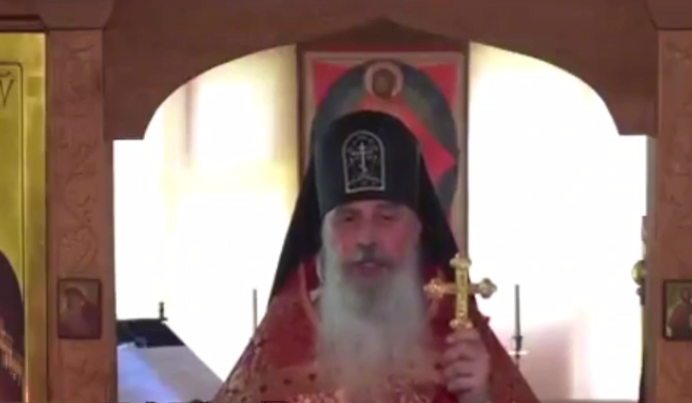Tensions between Orthodox Christians and Muslims in Russia
Some hostile words towards Islam uttered by Hegumen Gavriil seem to have given voice to widespread discontent among the most intransigent Orthodox Christians, who see the ‘Muslim army’ as a danger. Controversy reveals a crack in the “Eurasian” course of Russia's state and religious policy today
Moscow (AsiaNews) - A particular case has highlighted tensions between Christians and Muslims in Russia that seemed to have been dormant for some time, in the common religious expression of the “patriotic spirit”.
Skhiigumen Gavriil (Vinogradov-Lakerbaja), a member of the community of the great monastery of Valaam in the north of the country and a highly respected figure as one of the most important starets in the Orthodox monastic world, was relieved of all his duties a few days ago for stating during a sermon that ‘Muslims would be capable of cutting off the heads of Muscovites if the mullah ordered them to’, a message that was also spread on Telegram.
The starets had been the superior of the monastery's Sochi branch for several years and is now confined to a hermit's cell outside the official premises.
Several Russian Islamic leaders reacted very aggressively to the igumen's words, most notably General Apti Alautdinov, commander of the Chechen brigade Akhmat and a very charismatic figure in the religious-militant world of the Caucasus and Russia as a whole, who used very offensive words towards the monk.
This provoked an equally hostile reaction from the ultra-traditionalist Orthodox members of the “Forty Quarantines” movement, who demanded that the general be dismissed (he later apologised) and that Gavriil be reinstated in his ecclesiastical office.
Yet in recent years, proposals have come from the Moscow Patriarchate to “unite the Caliphate, Holy Rus” and the Soviet Union' in a single great spiritual “sobornost”, in order to better counter the degradation of Westerners, fearing the loss of faith in Europe much more than the spread of Islam.
Orthodox priests often refer to Muslims as “truly devout people”, inviting their own faithful to follow their example, whereas now it seems that the Muslim faith is considered “a threat to Russian identity”.
Igumen Gavriil himself seems to have given voice to widespread discontent among the most intransigent Orthodox Christians, who see as a danger ‘the Muslim army’, with his hostile words spoken on the eve of Kurban-Bajram, as they call in Russia the feast of Eid-al-ahda, which concludes the period of the canonical pilgrimage to Mecca. Gavriil also wanted to point out that Islam is ‘a false faith’, receiving much support from social media responses to his speech.
Comments came from the Moscow Patriarchate in the form of Russian-French Archbishop Savva (Tutunov), who has been increasingly prominent on the religious-ideological scene in recent times and is director of the missionary department.
He branded Father Gavriil's sermon as ‘a bunch of nonsense’, but agreed with him on the question of ‘true and false faith’. Savva criticised “syncretistic interpretations of the mutual relations between Islam and Christianity” such as those of General Alautdinov, reiterating that “the primary historical and cultural significance of Orthodoxy for our homeland” cannot be questioned.
These controversies were further exacerbated by a video posted on social media by a Muslim soldier in the Russian army, who fires a grenade launcher at an Orthodox church in the Sudža area, a town disputed with the Ukrainians in the Kursk region.
These and other forms of conflict between Islam and Orthodoxy are undermining the “Eurasian” course of Russia's state and religious policy today, which is largely based on dialogue with Muslims through the activities of the Interreligious Council under the Russian Presidency.
Tutunov also points out that Muslims do not exceed 7% of the population, compared to almost 70% of Orthodox Christians, at least according to formal declarations of affiliation, and that the rift between the two “traditional religions” seems destined to widen in the near future, in the face of growing Russian nationalism.







.png)










